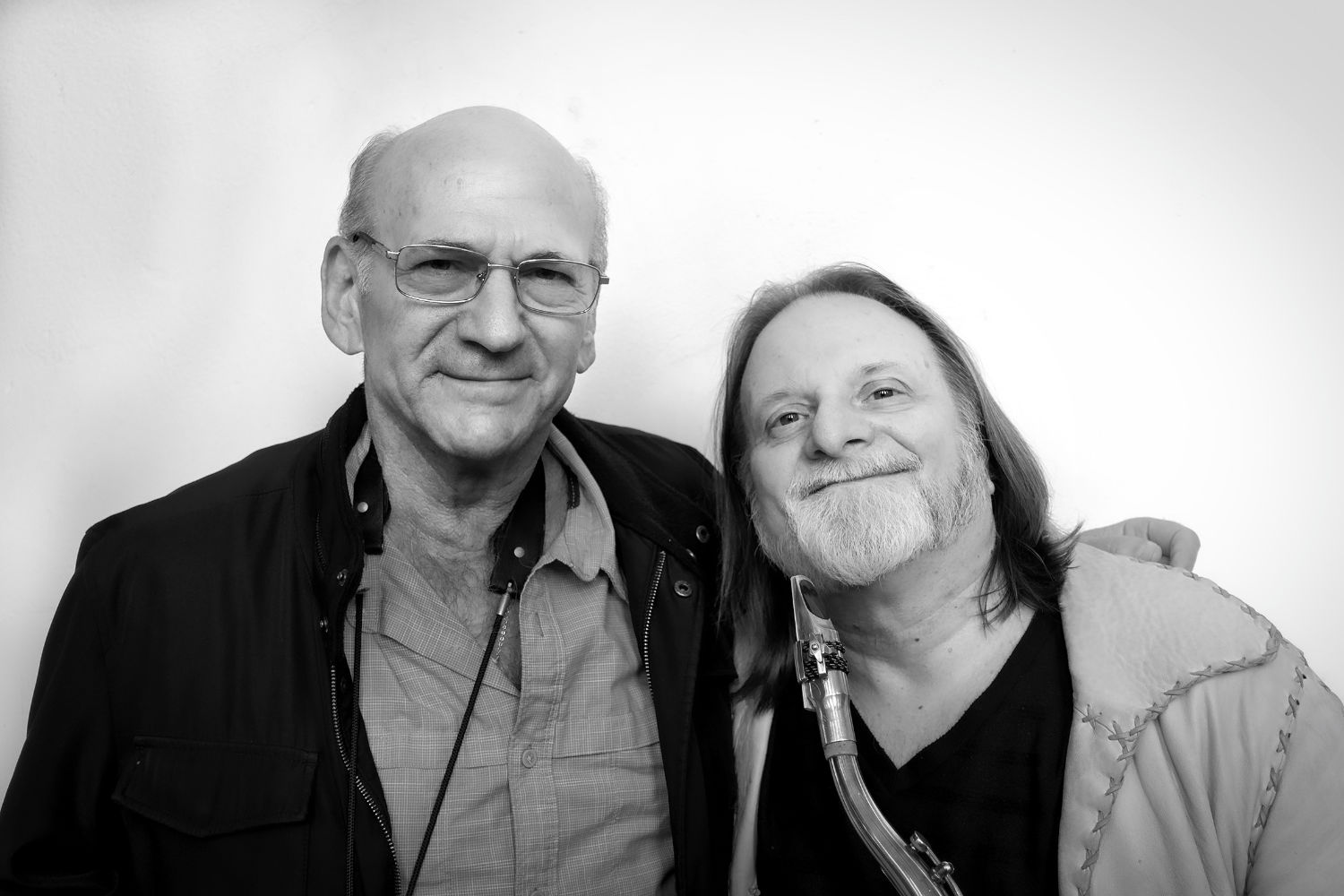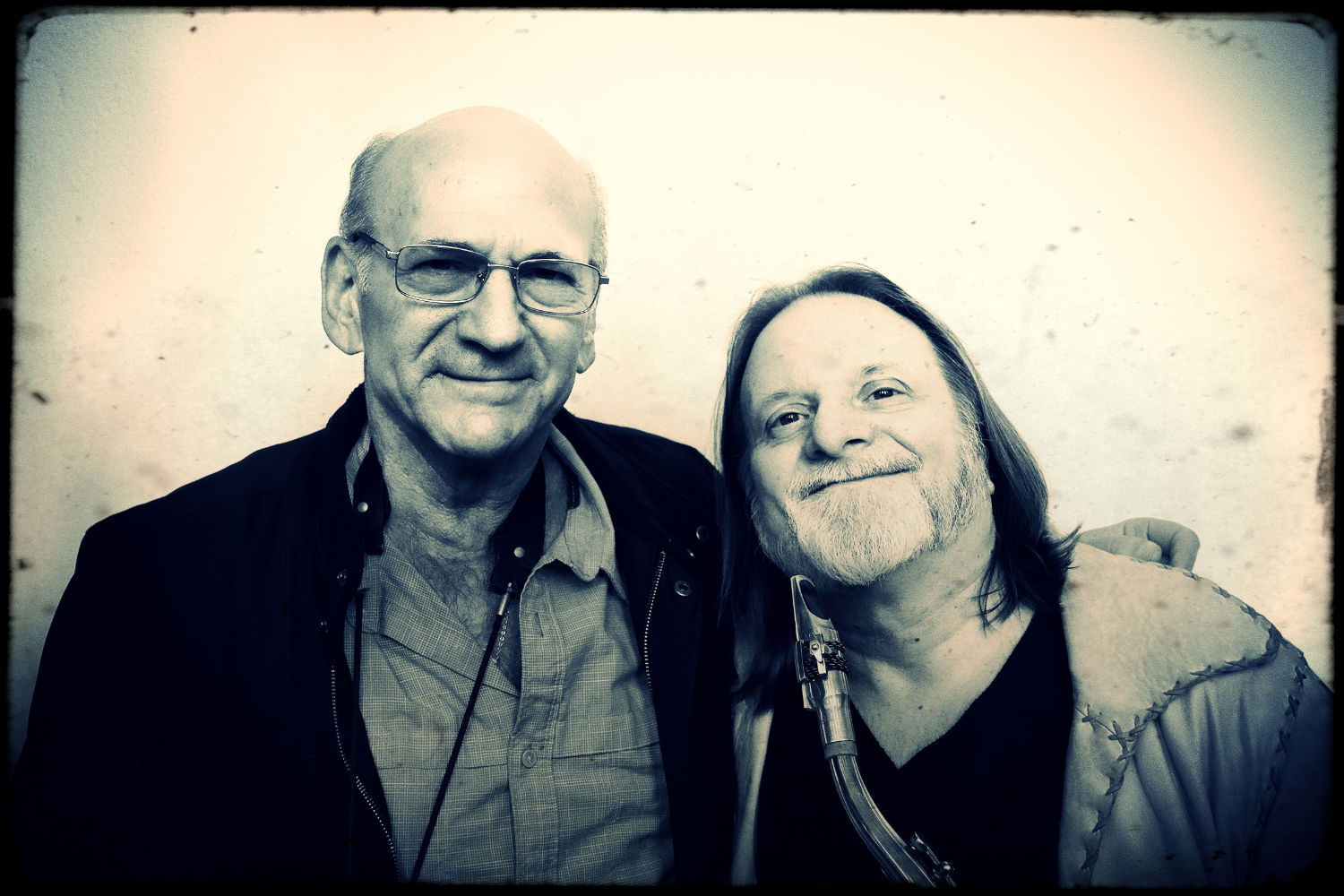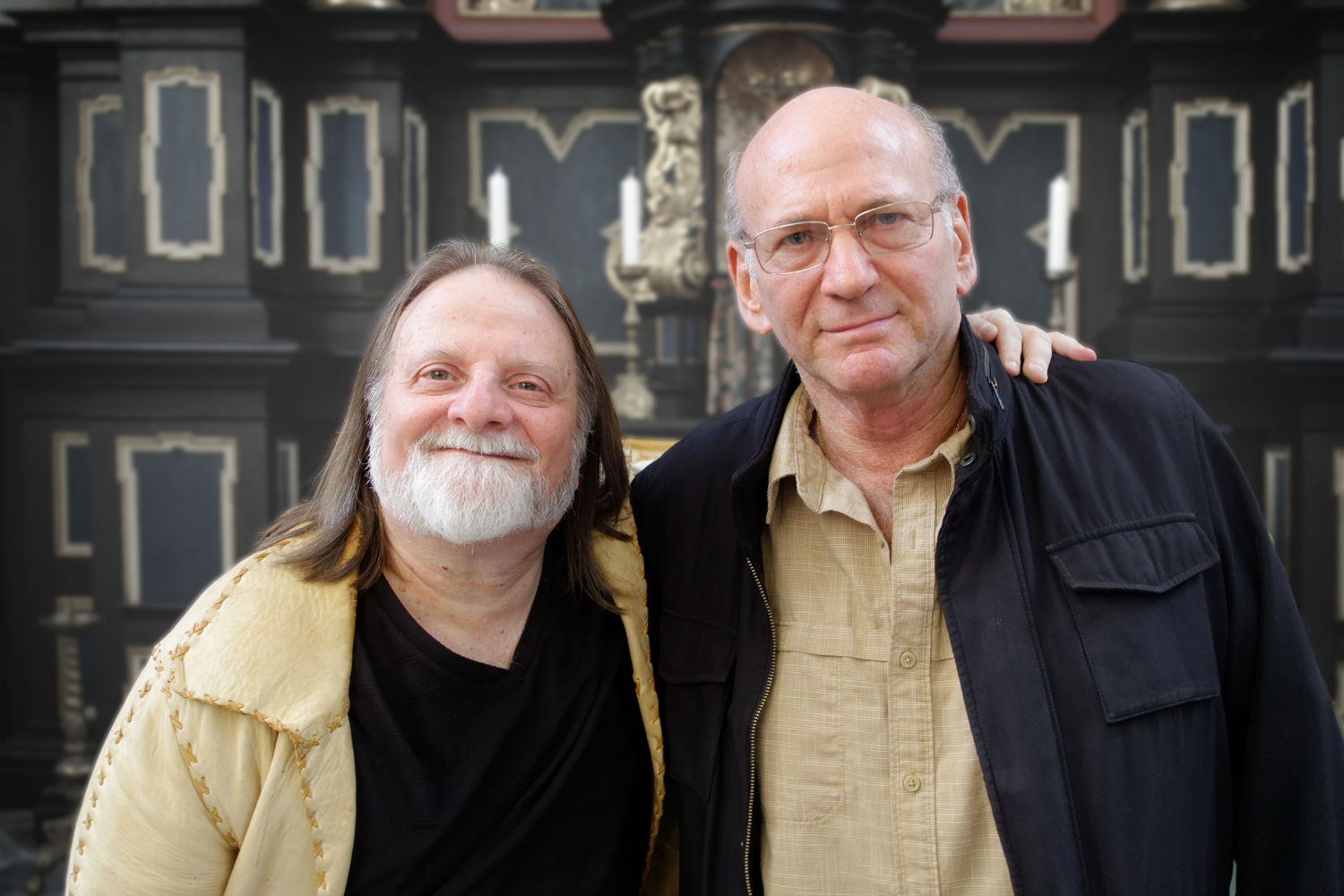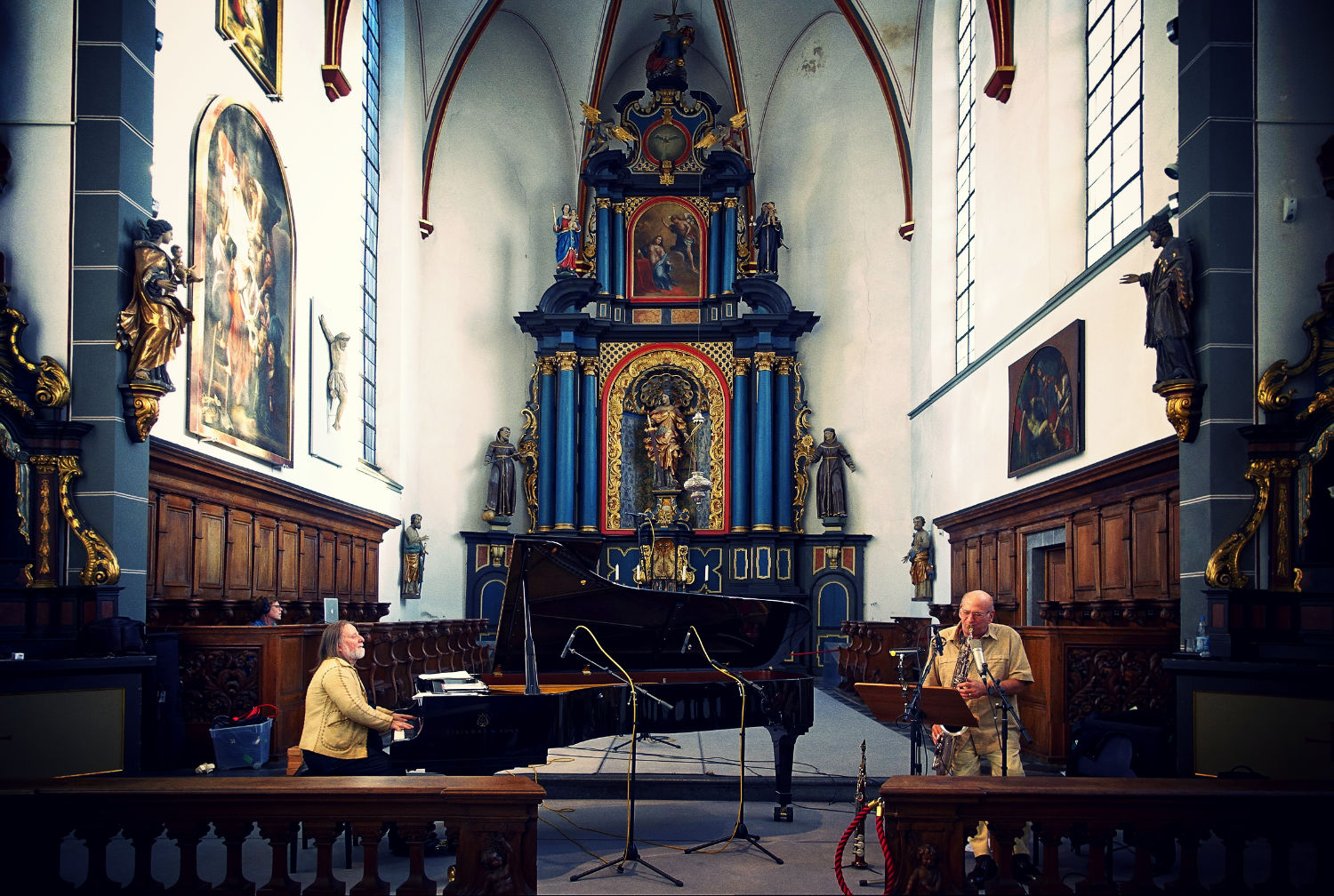Jazzline N 77067 (CD)
ETERNAL VOICES
listen on iTunes, Spotify (Links noch einfügen)
description
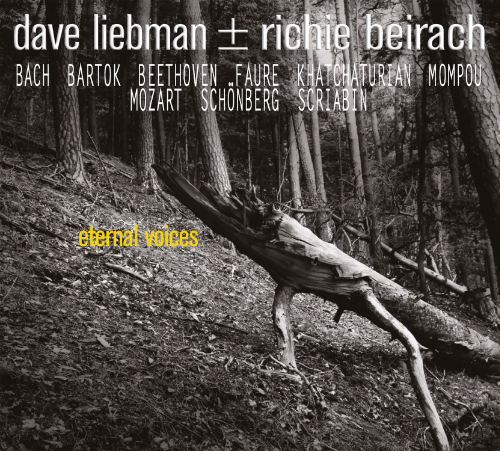
This release celebrates the 50th year anniversary of Lieb and I meeting, playing and recording our music together. It has been an amazing run and happily is still ongoing, stronger than ever. This Eternal Voices recording is very special even for us. We chose to use short but very powerful masterpieces of classical music from Bach to Schoenberg as a format for our improvisations. We have both played these kinds of music before but this is the first time that we concentrated on a complete repertoire of these great compositions by the masters.
Rather than outline a tune by tune analysis of the music I prefer to speak about the atmosphere of the recording and its preparation. I have always studied and loved classical music. Since I was five years old I studied for thirteen years with a great old Italian master teacher, James Palmieri. This was before I became interested in jazz piano playing. I was a good student but there always seemed to be something missing. In my foolish young and uninformed mind I thought I would somehow, someday improve these short pieces that I used to play some of which we have recorded here. Little did I know that years later and thousands of hours work later I would be in a position to actually use these pieces as a springboard for improvisation!
Jazz improvisation at the level that we aspire to is really about mutual trust, unconscious collective feelings and the unknown. The risk is real, we are sometimes hanging out there on the precipice of disaster. Which direction to go in the instant?? No time, no possibility of rehearsing, directing, forcing the duo music into a preconceived notion, we are sometimes one inch from kitsch!! Especially in the limited diatonic but elevated language of Bach, Mozart and Beethoven. Like all the great masterworks, difficulty and personal satisfaction go hand in hand. The wonderful pressure of making a recording that will live in digital information forever certainly centers the mind and spirit. We are not afraid but alert to the opportunities of the moment. How to honor iconic composers from 400 years ago and still create something fresh and relevant to our time that will hopefully last eternally is the challenge.
To say a few words especially about the Bartok recordings of this project which was really a mysterious process and outcome. Talk about going back to our roots! From 1968 to 1972 I studied theory and composition at the Manhattan School of Music with Ludmela Ulehla. One of the greatest series of works that we analyzed were the six Bartok string quartets. I still have the pocket scores I used in school to understand and absorb these great iconic works of contemporary music for the ages. Dave and I spent hours looking and listening with these scores. It was Dave’s great idea to arrange just the slow movements for this recording of classical pieces.
So much of my language of modern jazz piano comes from Bartok. The incredible intervallic ideas that are super developed in extraordinary ways not just in the string quartets but in his Music for Strings, Percussion and Celeste, the Concerto for Orchestra and the 14 Bagatelles for Solo Piano. This was a wealth of musical ideas from which me and Dave drew from. Like a great giant reservoir, we drank from it over and over with the content of the six String Quartet’s slow movements were especially important to our development as young jazz improvisors. As well, I must say the great spirit and powerful energy of Bartok’s statements moved us and inspired our imaginations. There is a connection between Bartok and Coltrane which connect us to much of the source of the chromatic universe. That universe and the all-embracing humanity of both Coltrane and Bartok’s music surrounded and supported our journey through these interpretations offered here.
A fascinating revelation came after our recording of the more contemporary pieces like the Scriabin, Schoenberg and of course Bartok. The harmonic and melodic language that Dave and I used to improvise on these pieces were actually derived from the essence of the exact melodies from these masters. So when recording we had a strong feeling of returning to the actual sources of what became our personal language over the years. This was something unpredictable but very comforting and life giving. In summary, our own personal ways of improvising are in some ways directly related source-wise from these iconic pieces. Combined with the various styles of bebop and the Impressionistic voices of Faure, Debussy and Ravel the well we drank from ran deep. Add to this wealth of sources the ever present references made to the John Coltrane Quartet (especially the incredible modal chromaticism of McCoy Tyner) and we had a large, colorful palette from which to paint our improvisations.
The rough history of music can be generally understood to be from Bach to Stockhausen. That does not mean there aren't many other composers before, during and after that we love and are important, but just from a loose bookend image, Bach to Stockhausen does offer the general parameters and historical scope of what musicians have to deal with when referencing the classical repertoire.
Also the two tunes from Dave and myself for Ernst Bucher and Walter Quintus are basically written off a very old and preset form called the Passacaglia. The structure is derived from a repeated, revolving and ascending bass line figure with simple chords, harmonized along the way, highlighted by a yearning and soulful crying melody with a suggestion of a blues feeling. Ernst and Walter were our close friends and brothers that we lost in the last few years. Here they are memorialized in song.
These recordings like many of our duo projects are all done in a very special place in the forest of Zerkall near Nideggen, Germany at our old and dear friend and patron Kurt Renker. An old house functions as a recording studio with an incredible old Bechstein piano and a youngish genius engineer named Florian. It is intimate and very relaxed but totally focused and creative. In this atmosphere we are free to create our duo music…..no time limits, no other musicians in other studios, no distractions. We are blessed with Kurt and Florian. The other critical component of the success of these projects is the piano tuner, Egon. To have a tuner of such great skill that knows me and the instrument is the perennial dream scenario of most pianists and saxophonists because especially in a duo, intonation is critical….and the piano must be PERFECTLY in tune all the time. The luxury of having Egon be there during the recording is a wonderful insurance against any intonation problems. Dave’s intonation is really great so we can go with the flow of the music and not waste precious creative energy time with fixing mechanics.
Dave is an ideal partner, relaxed intensity is the way I would describe his approach. We love this intense focus on the continuous challenge of collective creativity. We rehearse very little but after our lifetime of playing, thinking and recording music together we get to the essence of the music immediately.
Let me thank my best friend of fifty years Dave Liebman. Lieb, as he is known and loved throughout the world has contributed much to giving our music longevity and consistent greatness. He is still full of surprises, a quality that is the essence of the music we call jazz in all its marvelous and varied forms and colors.
This sound of surprise still enthralls us and brings life and light to the world of music and beyond.
Written by Richie Beirach
Edited by Dave Liebman


